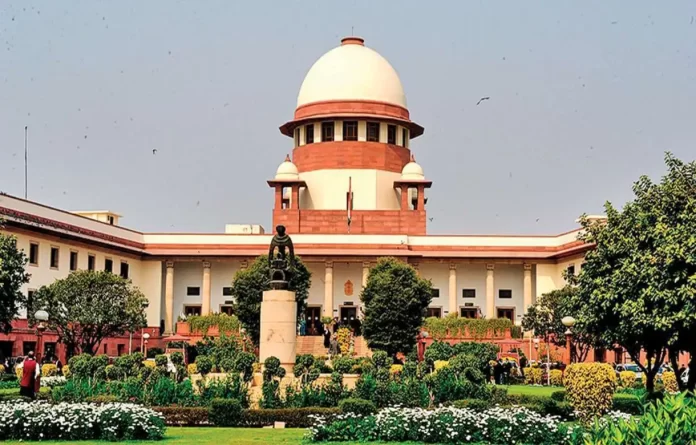The Supreme Court has constituted a Special Bench to hear a batch of writ petitions challenging the constitutionality validity of the Places of Worship Act (Special Provisions) Act, 1991.
The Special Bench of Chief Justice of India Sanjiv Khanna, Justice Sanjay Kumar and Justice KV Viswanathan will hear the petitions on December 12 at 3:30 pm.
In 2020, Advocate Ashwini Kumar Upadhyay had filed the lead petition in the case. In March 2021, the Supreme Court issued notice to the Union Government on his plea.
Similar petitions were later filed in the case, including Vishwa Bhadra Pujari Purohit Mahasangh vs UOI and Dr. Subhramanian Swamy And Ors vs UOI.
Section 3 of the 1991 Act expressly barred the conversion of any place of worship of any religious denomination into another place of worship of a different section of the same religious denomination or a different religious denomination all together.
Section 4 declared that the religious character of a place of worship existing on August 15, 1947 shall continue to be the same as it existed on that day. The Act further prohibited legal proceedings seeking conversion of these places.
Terming the law as arbitrary and unreasonable, the petitioners contended that the 1991 Act infringed the fundamental right to practice religion, leading to violation of the fundamental rights under Articles 14 and 25 of the Indian Constitution.
Recently, the Managing Committee of the Anjuman Intezemia Masjid in Varanasi filed an intervention petition in the Supreme Court in the pleas challenging the constitutional validity of the Places of Worship Act, 1991.
Filed by AoR Fuzail Ahmad Ayyubi, the petition claimed that the Managing Committee of the Anjuman Intezemia Masjid was a key stakeholder in the legal deliberation since several suits have been filed claiming the removal of the Gyanvapi Mosque despite the bar under Sections 3 and 4 of the 1991 Act.
The committee said the applicant was constrained to intervene in the present proceedings as due to misreading/misinterpretation of the 1991 Act, the salutary reasons for which it had been enacted, were being sought to be diluted.
It contended that the consequences of the declaration sought by the petitioner that the Act was unconstitutional were bound to be ‘drastic’. It also raised concern over the filing of suits against Mosques and Dargahs, even before the issues were struck, seeking interim directions for the survey of the Mosques or an ASI inspection.
The petition further mentioned the ex-parte interim orders granted by the district courts, allowing the survey of the Gyanvapi Mosque and the recent survey at the Shahi Jama Masjid in Sambhal.
Referring to the decision of the Apex Court in the Ram Janmabhumi Temple case, the Committee mentioned the doctrine of non-retrogression. Under the said principle, the State had a ‘non-derogable obligation’ to ensure the country’s commitment towards Secularism under the Constitution.
The petition mentioned the ruling of the Apex Court, which held that the State, by enacting the law, has enforced a constitutional commitment and operationalised its constitutional obligations to uphold the equality of all religions and secularism, which was a part of the basic features of the Constitution.
It said the Places of Worship Act imposed a non-derogable obligation towards enforcing the State’s commitment to secularism under the Indian Constitution. Hence, the law was a legislative instrument designed to protect the secular features of the Indian polity, one of the basic features of the Constitution.
Non-retrogression was a foundational feature of the fundamental constitutional principles of which secularism was a core component. The Places of Worship Act was thus a legislative intervention, which preserved non-retrogression as an essential feature of secular values, it added.
Highlighting the recent incidents of violence that took place following the survey orders of the Sambhal Mosque, the Committee warned that such litigation may accelerate communal disharmony across the nation.
It said a court in Sambhal, Uttar Pradesh recently appointed a Commissioner for the survey of the Shahi Jama Masjid. The very day when the suit was presented in ex parte proceedings, the incident led to widespread violence and has claimed, as per reports, at least six lives.
The declaration sought by the petitioner would mean such disputes may rise their head in every nook and corner of the country and ultimately obliterate the rule of law and communal harmony, it added.
Total 20 civil suits have been filed in the Varanasi district court seeking to nullify the protection of Gyanvapi Mosque under the 1991 Act and its removal.


